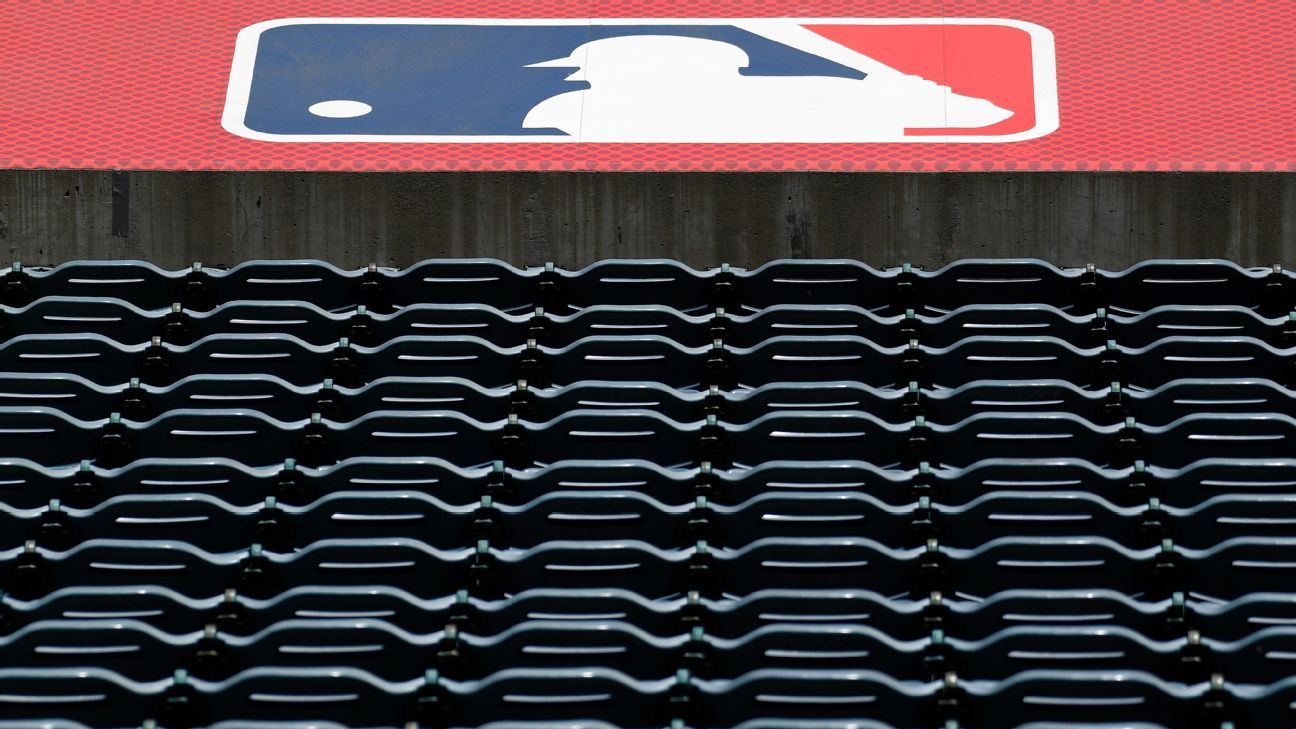
Major League Baseball plans to cancel another week of regular-season games if it can't agree to a new collective bargaining agreement with the MLB Players Association by Tuesday night, adding another layer of pressure onto already-tense negotiations as the league's lockout nears its 100th day, sources familiar with the situation told ESPN.
The urgency to strike a labor deal ratcheted up Monday as the league suggested that Tuesday was the deadline for a 162-game season and for the players to receive full pay and full service time. The union has held firm, even after MLB canceled the first week of the season, that 162 games of pay and service time are central to any deal struck, and it has threatened to withhold expanded playoffs without them.
While optimism was cautious for the planned in-person meeting on Tuesday, both parties recognize that the complicated labor talks could run into an obstacle if MLB cancels another batch of games, prompting pay and service to become another potentially problematic divide.
In a proposal on Monday, the league lessened the chasm on the competitive-balance tax, the primary issue dividing the parties leading into the league's cancellation of games on March 1. MLB's offer bumped the first CBT threshold from $220 million to $228 million, sources said, still shy of the $238 million request the union held to Monday in its written response to the league's previous proposal. The growth of the CBT proposal to $238 million in the fifth year of a potential deal remained one of the sticking points for players, whose proposal seeks a $263 million first threshold in 2026, sources said.
MLB tying Tuesday to full pay and service, which was first reported by The Athletic, adds a long-expected pressure point to talks. While terms of any collective bargaining agreement can be negotiated, the threat of removing full pay and service from future proposals -- as well as the potential rejoinder of expanding the playoffs from 10 to 12 or 14 teams -- adds gravity to Tuesday's talks. Should a deal not be struck Tuesday, the complications to reach one in the future could grow more difficult.
At the same time, before the league's last deadline on Feb. 28 -- which got pushed to March 1 -- it suggested the cancellation of games meant no making them up and no recouping lost pay and service. MLB has softened on that stance, suggesting Monday that if a deal comes down Tuesday, players can be in spring training camps by Friday and lost games could be made up on off days and with doubleheaders.
The seriousness of discussions was reflected by the privacy of Monday's talks and the desire of both sides to prevent the leaking of proposals, sources said. For all the progress made in recent weeks on proposals such as minimum salary, expanded playoffs and the draft lottery, enough separation exists to temper enthusiasm about a deal being reached Tuesday, sources said.
Among the CBT, the size of the bonus pool and the league's desire for a 45-day window to implement on-field changes, the ability to bridge gaps in one day could prove too great for a deal. Further, any agreement between MLB and the MLBPA is subject to ratification by the owners -- who need 23 of 30 teams to sign off on a deal -- and players.
Tension has defined the talks, which began nearly a year ago, and little progress was made before the league locked out the players Dec. 2. The optimism that emanated from the nine-day negotiating session in late February was short-lived, as the players rejected a proposal from the league that kept the CBT at $220 million for the first three seasons of the deal.
Then on March 1, MLB commissioner Rob Manfred canceled the first week of the season after having already taken down spring training games. The season's second week -- and perhaps many more -- could be in jeopardy without a deal on Tuesday, though the slow dance toward a compromise that would bring back baseball leaves a whit of hope in what thus far has been a lost spring.















 Phone: (800) 737. 6040
Phone: (800) 737. 6040 Fax: (800) 825 5558
Fax: (800) 825 5558 Website:
Website:  Email:
Email: 






